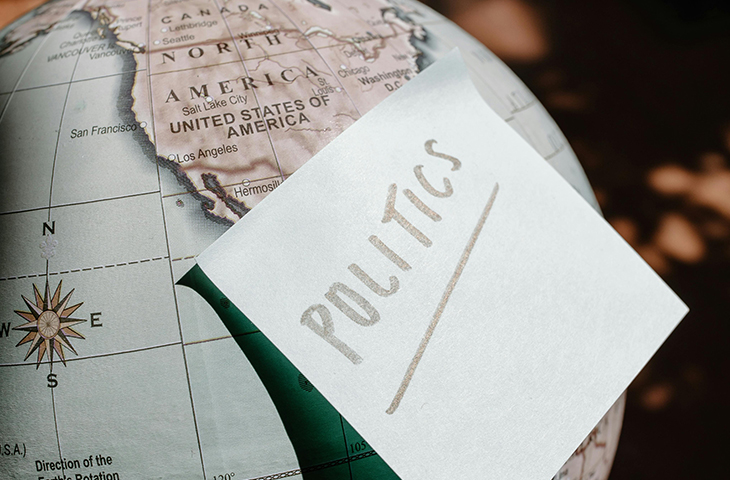Wall Street Executives Warn Of Economic Turbulence As Consumers Brace For Inflation

The chief executives of some of Wall Street’s top firms are warning about the precarious state of the U.S. economy as President Donald Trump’s trade war roils financial markets and sparks inflation fears among consumers.
“Uncertainty and anxiety about the future of the markets and the economy are dominating each and every client conversation,” BlackRock CEO Larry Fink said Friday on an earnings call for his company, the world's largest asset manager.
In an interview with CNBC, Fink said, “We’re very close, if not in, a recession now."
JPMorgan Chase CEO Jamie Dimon said the economy faces “considerable turbulence” as his bank — the biggest in the U.S. — boosted its rainy day fund to cover potential losses from customers defaulting on loans.
“We continue to believe it is prudent to maintain excess capital and ample liquidity in this environment,” Dimon said in a statement. “As always, we hope for the best but prepare the firm for a wide range of scenarios."
The comments from the Wall Street titans came after a tumultuous week in which Trump imposed massive tariffs on most major U.S. trading partners — then backtracked hours later amid a sell-off in government bonds and stocks. Trump also ratcheted up tariffs on China, setting off a trade war between the world's two biggest economies, with Beijing responding in kind.
The turmoil is shaking Americans' confidence. A closely watched gauge of consumer sentiment plunged in April — with expectations of inflation soaring to their highest level since 1981.
The University of Michigan survey showed that consumer sentiment was weaker than expected and fell for the fourth straight month as people's expectations about their personal finances, incomes and jobs deteriorated. The survey tracked consumers through April 8, the day before Trump announced a suspension of some tariffs.
“Consumers report multiple warning signs that raise the risk of recession: expectations for business conditions, personal finances, incomes, inflation, and labor markets all continued to deteriorate this month,” survey director Joanne Hsu said in a statement.
The share of consumers expecting the jobless rate will increase in the coming year more than doubled from November, and it’s at the highest rate since 2009, during the financial crisis, according to the survey.
That anxiety is also pervading Wall Street, as investors have been selling off U.S. government bonds and dollars and piling into alternative assets like the euro. That suggests financial markets are growing more leery about the prospect of investing in the U.S.
Sustained convulsions in bond markets could complicate Republican efforts to extend and expand 2017 tax cuts that expire at the end of the year, moves that would reduce revenue for the government coffers and further expand the debt. They could also lead to more serious economic and financial disruptions.
Dimon said his bank — which nonetheless reported a 9 percent jump in earnings from a year ago — was starting to hear from clients about how Trump’s tariffs were affecting their business, though the impact was mixed.
“People are being cautious,” he told reporters. “People are pulling back on doing deals — not just big ones, but middle market companies — and being very cautious about investment.”
But Dimon downplayed concerns that turbulence in the bond market in recent days was an indication that investors were souring on U.S. debt as a safe haven.
“This is still the most prosperous nation on the planet,” he said, adding that “America is still a pretty good place in a turbulent world” for investment.
Wells Fargo CEO Charlie Scharf said in a statement that he expected “continued volatility and uncertainty” and that the bank was “prepared for a slower economic environment in 2025.”
“We support the administration’s willingness to look at barriers to fair trade for the United States, though there are certainly risks associated with such significant actions,” Scharf said. “Timely resolution which benefits the U.S. would be good for businesses, consumers, and the markets.”
Declan Harty contributed to this report.

